Do pressure washers use a lot of water? Yes, but probably not as much as you’d think
Plus, some handy top tips on how to save water when using a pressure washer
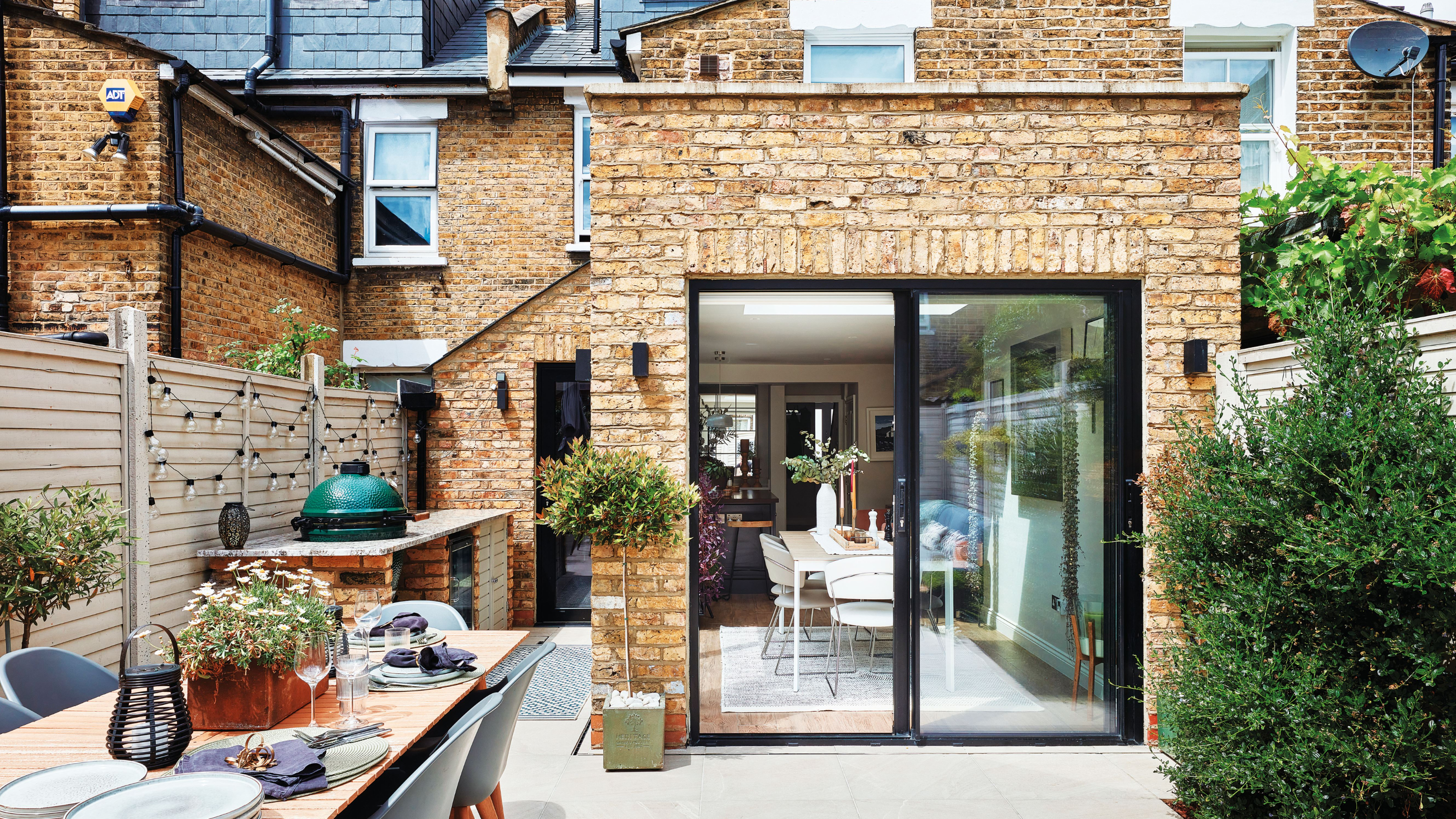

You probably don’t need us to tell you that a pressure washer wouldn’t be a pressure washer without water. But if you’re on a water meter and looking to save money on your bills, it’s important to know just how much water a pressure washer uses.
While we already know how much electricity a pressure washer uses, that’s not the only cost you need to factor in when using one of the best pressure washers. That's because this handy garden appliance will impact two of your monthly bills: your energy bill and your water bill.
This is something you should consider before buying your first pressure washer or using an old one to clean a driveway, wash a car, or refresh your patio in time for summer. And that’s exactly why we’ve consulted with the experts to understand how much this will really cost you.
Do pressure washers use a lot of water?
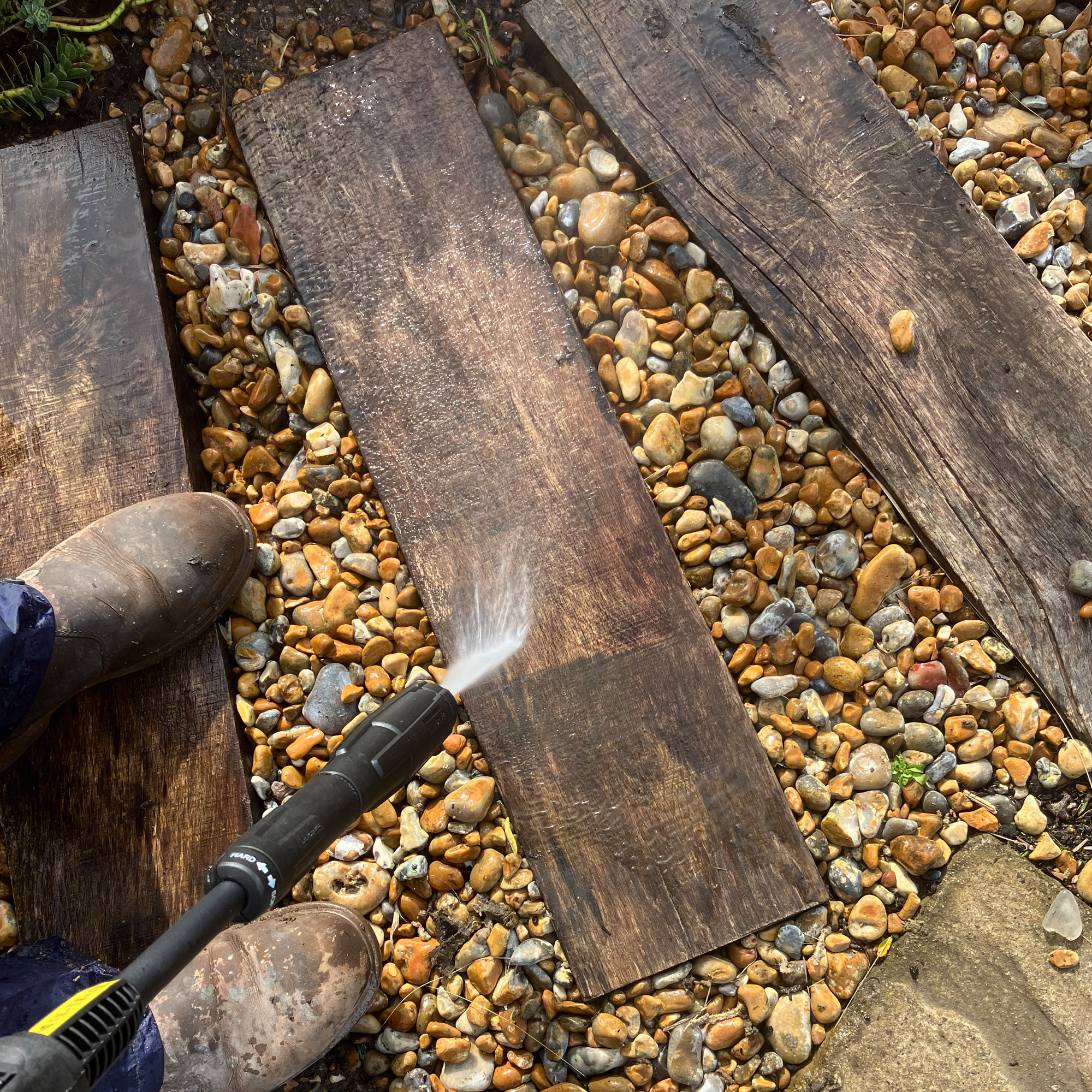
If you’re unmetered and simply pay a set amount for your domestic water service regardless of how much you use, the amount of water a pressure washer uses won’t impact your bills. However, it’s still important to minimise your water consumption when you can.
If you’re on a water meter, on the other hand, you’ll pay for the units of water you use - which will drastically increase when you use a pressure washer. How much you actually pay depends on a few factors, though.
‘The amount of water used by a pressure washer can vary based on many factors, including the pressure washer's flow rate, the pressure setting, and the duration of use,' explains Nick Ee, product and training manager at BLACK+DECKER.
Because of this, it’s best to consult the pressure washer you have in your shed or the specifications of the pressure washer looking to buy. ‘On average a pressure washer can use between 2 to 4 gallons of water per minute (GPM), this means for an hour's use it’ll consume between 120 to 240 gallons of water,' says garden landscaping expert Tom Clifford, from Gardenstone.
Get the Ideal Home Newsletter
Sign up to our newsletter for style and decor inspiration, house makeovers, project advice and more.
This is the case for the Nilfisk Excellent 160-10 PA Pressure Washer, which has been crowned the ‘Best multipurpose pressure washer’ in our guide. This particular pressure washer uses around 2 gallons of water per minute, or 120 gallons per hour - which is more than you’d probably think.
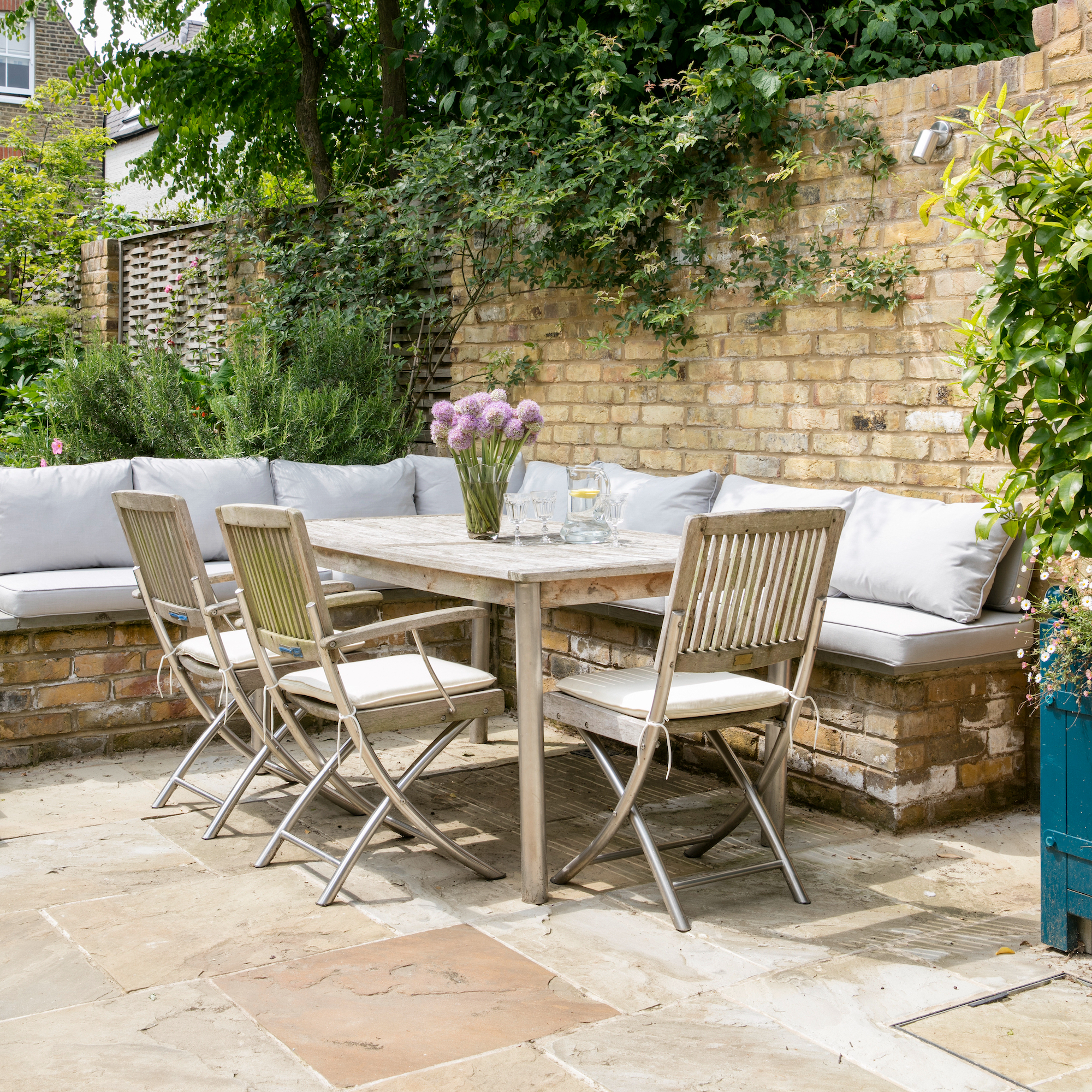
‘On average 120 gallons of water is equivalent to 4 baths, so this is a substantial amount of water for cleaning your patio,’ adds Tom. And to work out how much that will cost, you’ll need to check your own personal water rates.
‘However, it is important to remember that the consumption of water will vary depending on the type of pressure washer you own,’ Tom says. ‘If you’re concerned about the amount of water you’re using then you may want to invest in a low GPM pressure washer, this will offer effective cleaning while consuming minimum water.’
In fact, there are some very efficient pressure washers out there - including our top-rated pressure washer, the Karcher K4 Full Control Home Pressure Washer. Although this pressure washer offers impressive cleaning power, it only uses a maximum of 1.5 gallons per minute, which is significantly less than others on the market.
This will still put your water bill up during a time when people are trying to save money, though, so is it best to clean without a pressure washer instead? Given the choice, Tom would always choose spending a few extra pennies on a pressure washer than cleaning by hand.
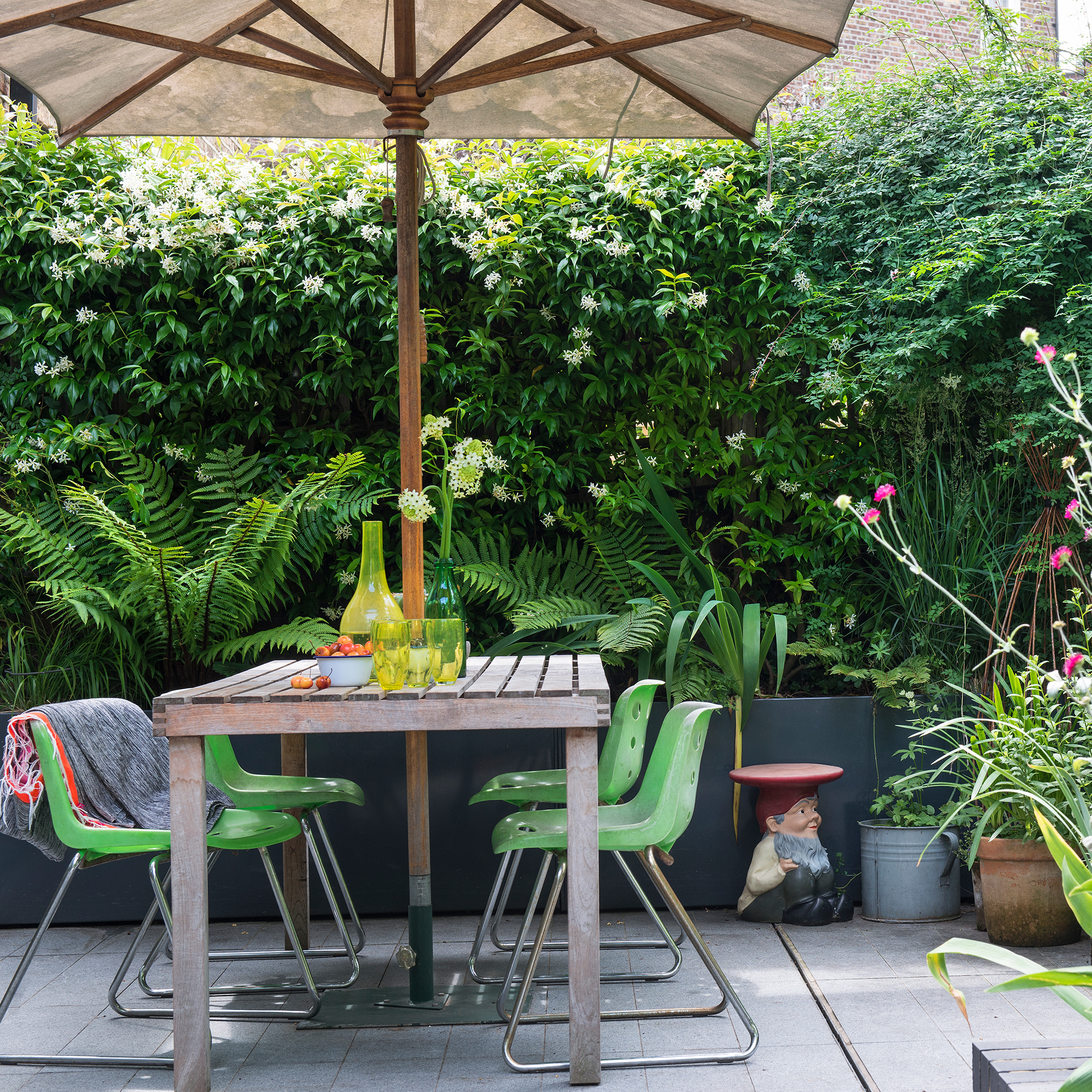
‘There is no denying that washing by hand will use much less water, and at maximum you will require 4-5 small buckets of water and a quick rinse with a hose,' says Tom. 'However, you may also need to clean your patio far more frequently with hand-washing, pressure-washers are effective at breaking through tough stains and dirt so your patio will likely stay clean for far longer.’
‘This means that in the long run, hand-washing may not use that much less water than pressure washing.’
How to save water when using a pressure washer
While there's no way to avoid using water when using a pressure washer, there are ways to considerable reduce the amount of water wastage. Here are some top tips on how to do that:
Use the proper technique: When using a pressure washer, you want to be quick and efficient. Unfortunately, spending too long playing around with a new pressure washer and figuring out its quirks will waste time and money, which is why you need to use the proper technique. Our guide on how to use a pressure washer can help you with that.
Use a cleaning agent: Although you don’t technically need to use a cleaning agent when using a pressure washer, this is something that could come in handy when you’re looking to save water. After all, the more cleaning agent that you use, the less water you’ll need to use. Just make sure that it’s safe to use this cleaner on the surface you’re looking to clean.
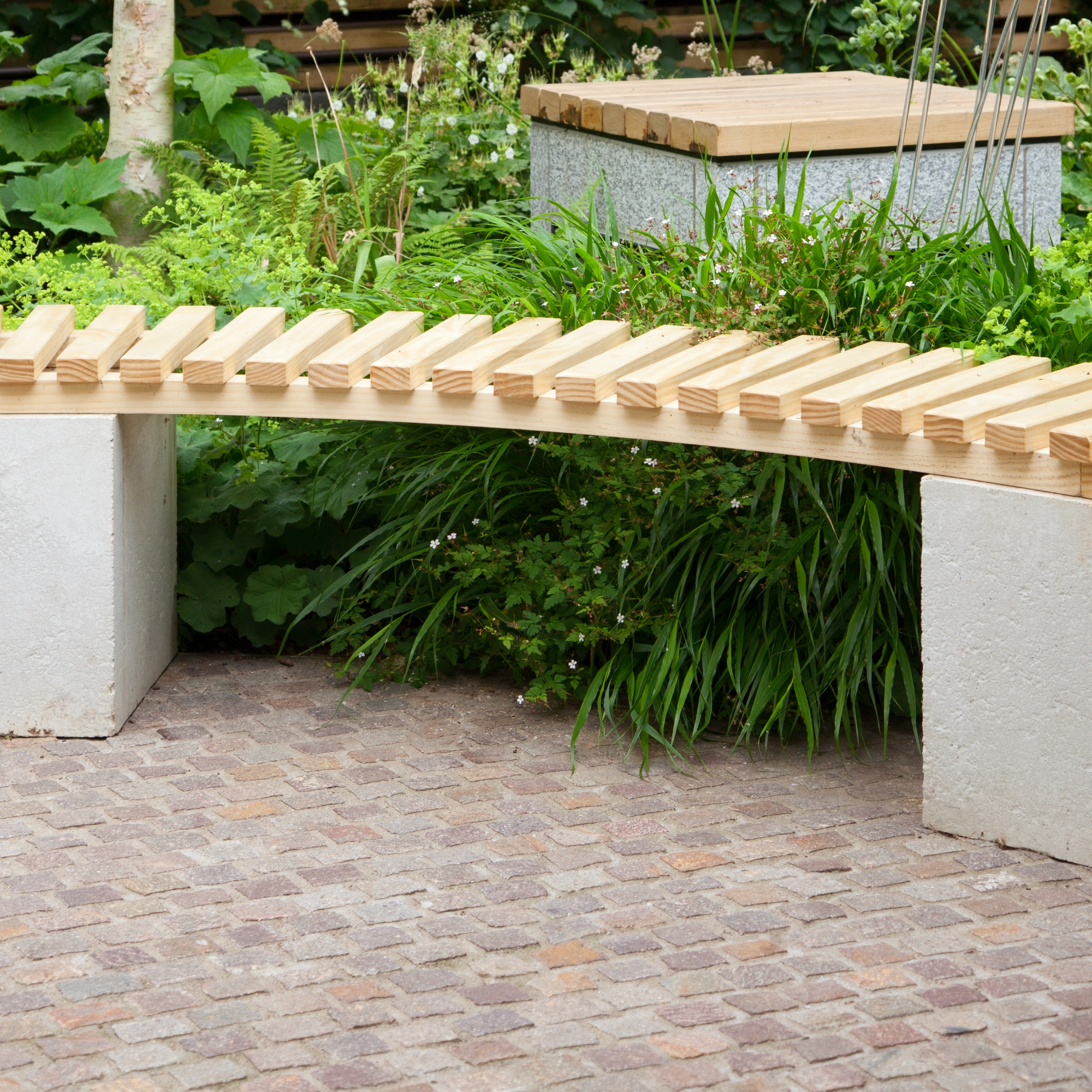
Choose a self-priming pressure washer: Did you know that you don’t necessarily need to connect a pressure to your outside tap? You could instead opt for a self-priming pressure washer, which allows you to fill the tank with an external water source such as a water butt. This can also work in your favour if you’re looking to use a pressure washer during a hosepipe ban, which is common during the summertime.
Avoid commercial pressure washers: If you have a large patio or driveway, you may be inclined to buy or rent a commercial pressure washer in an effort to save you time. But, ultimately, what you gain in time is lost in your water bills. Nick says, ‘Commercial or industrial-grade pressure washers can use anywhere from 2.5 to 5 GPM or more.’
Use warm water: Everyone knows that it’s easier to wash dirty plates in warm water rather than cold water, and the same is the case when cleaning a patio or driveway. By adding some warm water to your pressure washer, you’ll find that it takes less time, as the warm water molecules break down the dirt and grime quickly.
The best pressure washers - our top picks
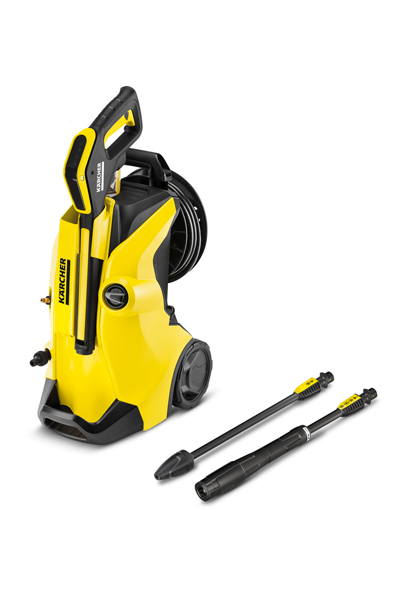
With a GPM of just 1.5 gallons per minute, this Karcher offering is pretty frugal when it comes to water consumption. It'll still work wonders on your patio or driveway, though.
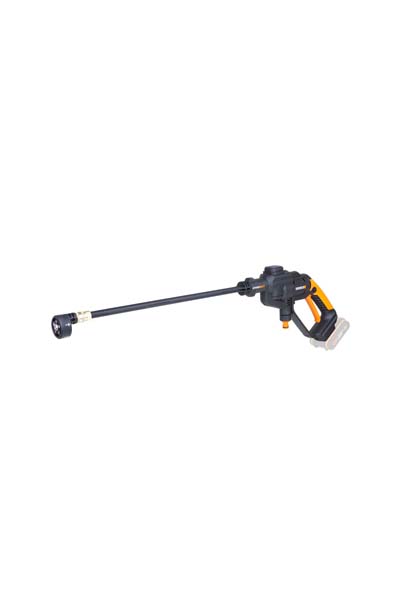
In addition to using just 1 GPM, this WORX Hydroshot Cordless Pressure Washer also self-primes. This means that you don't necessarily need to use water from your mains if you don't want to.
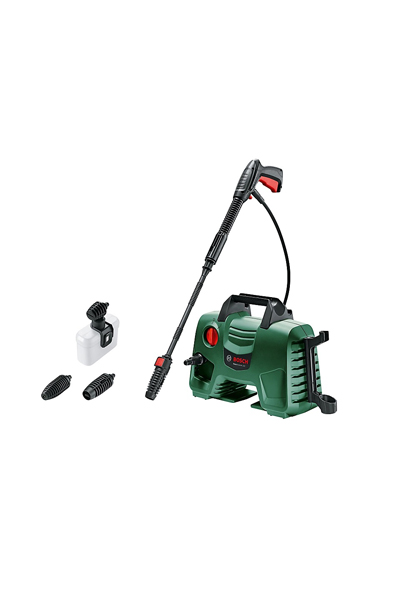
This Bosch offering is still well under the industry average at 1.45 GPM, so you don't have to worry about paying expensive water bills if you're on a water meter.
FAQs
Does a pressure washer waste a lot of water?
Pressure washers certainly do use a lot of water. Most domestic pressure washers use between 2 to 4 gallons of water per minute (GPM) which equates to 120 to 240 gallons of water. To help visualise that, 120 gallons of water is the equivalent of four bath’s full of water.
However, pressure washers are often the most effective way to clean outside areas - especially compared to hand cleaning.
There are also many ways to save water while you’re using a pressure washer, and you can choose a model that suits you and your water bill best.
Does a pressure washer use less water than a garden hose?
Yes! While it may seem like pressure washers use a lot of water, they use very little compared to the garden hose. On average, they use between 50-80% less than a typical garden hose, and that’s all thanks to its high-pressure system.
In fact, Karcher claims that all of its pressure washers use up to 80% less water than a garden hose, which is why it’s always better to clean a patio or refresh a patio with a pressure washer.
So, pressure washers do use a lot of water, but probably not as much as you’d think.

Lauren Bradbury has been the Content Editor for the House Manual section since January 2025 but worked with the team as a freelancer for a year and a half before that. She graduated with a Bachelor’s degree in English and Creative Writing from the University of Chichester in 2016. Then, she dipped her toe into the world of content writing, primarily focusing on home content. After years of agency work, she decided to take the plunge and become a full-time freelancer for online publications, including Real Homes and Ideal Home, before taking on this permanent role. Now, she spends her days searching for the best decluttering and cleaning hacks and creating handy how-to guides for homeowners and renters alike, as well as testing vacuums as part of her role as the Ideal Home Certified Expert in Training on Vacuums, having spent over 110 hours testing different vacuum models to date!
-
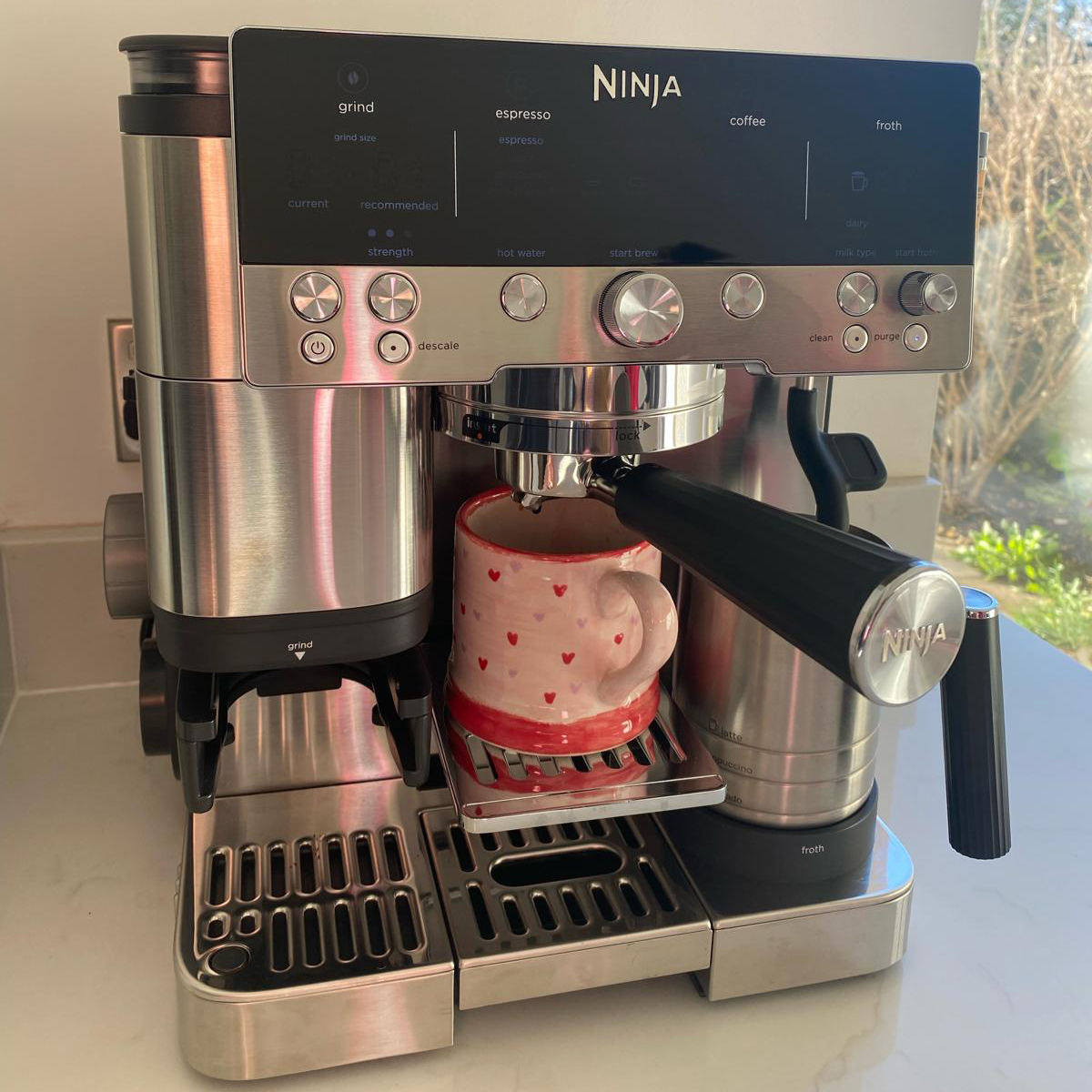 My go-to Ninja coffee machine is on sale for Easter weekend
My go-to Ninja coffee machine is on sale for Easter weekendIt makes coffee shop quality achievable at home
By Molly Cleary
-
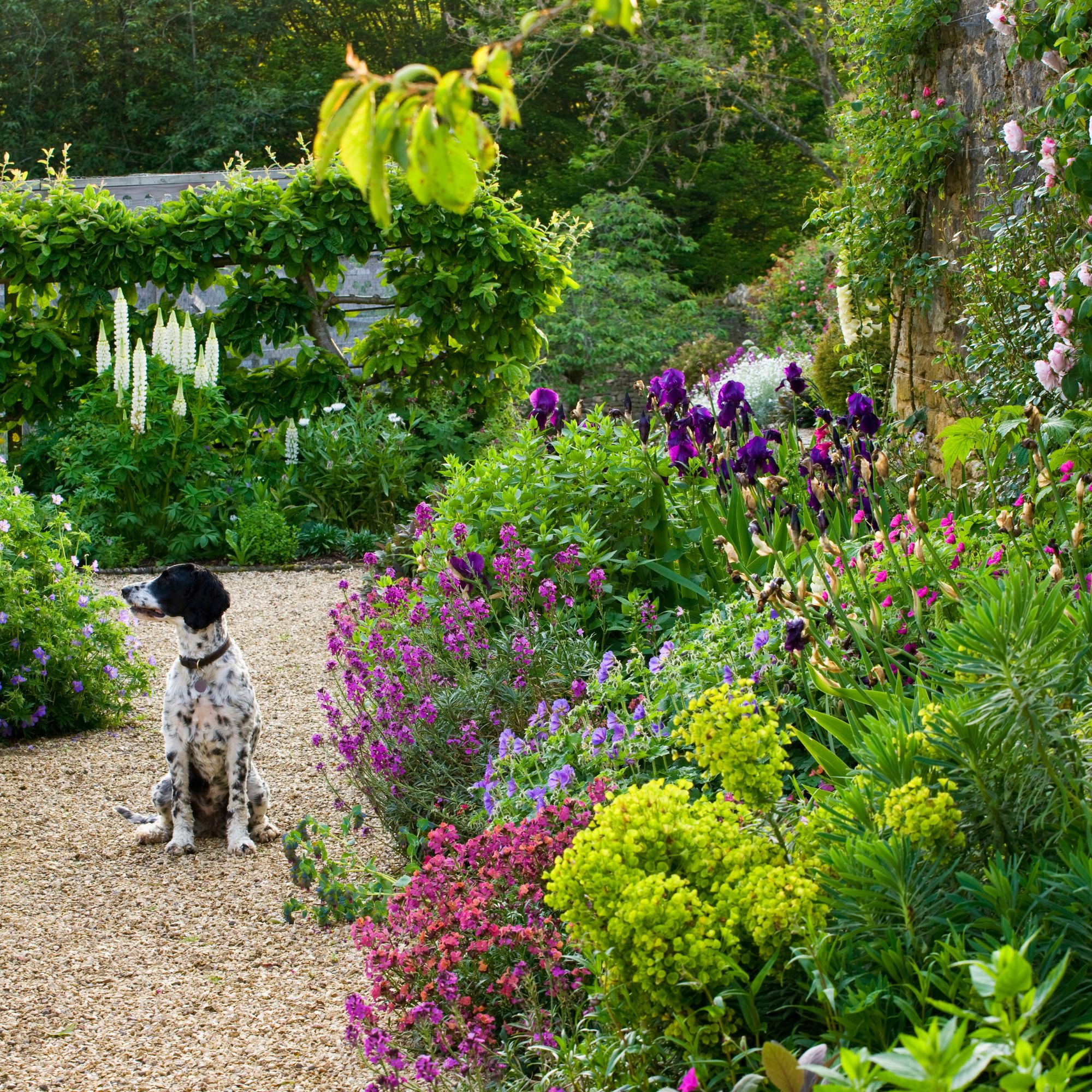 When to plant out annual flowering plants for vibrant, colourful garden borders – and give them the best start, according to experts
When to plant out annual flowering plants for vibrant, colourful garden borders – and give them the best start, according to expertsNot sure when to plant out annual flowering plants? We've got you covered...
By Kayleigh Dray
-
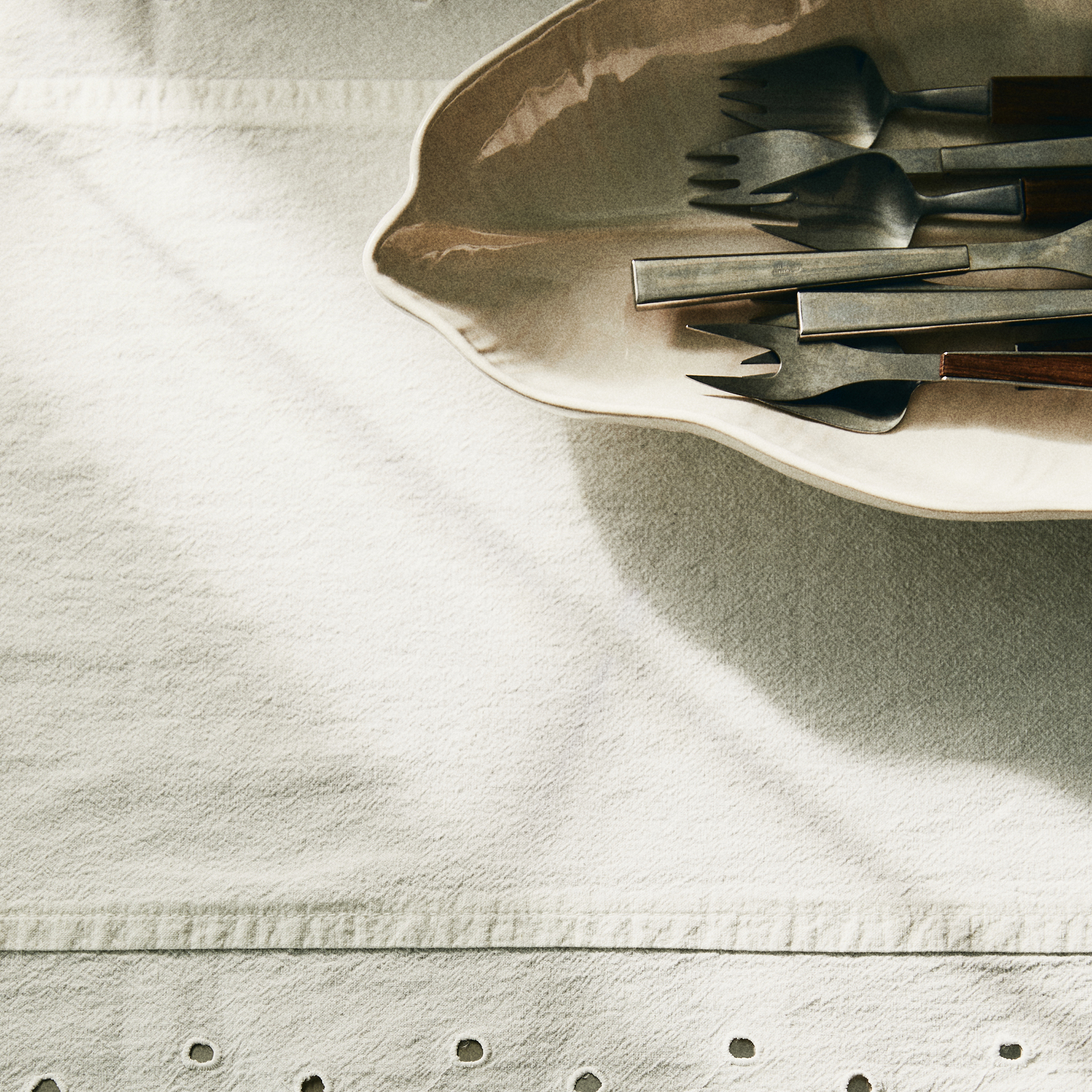 I'm a kitchen decor editor and didn't like this tableware trend - until I saw H&M Home's designer-look plates
I'm a kitchen decor editor and didn't like this tableware trend - until I saw H&M Home's designer-look platesThey made it easy to justify a new crockery set
By Holly Cockburn